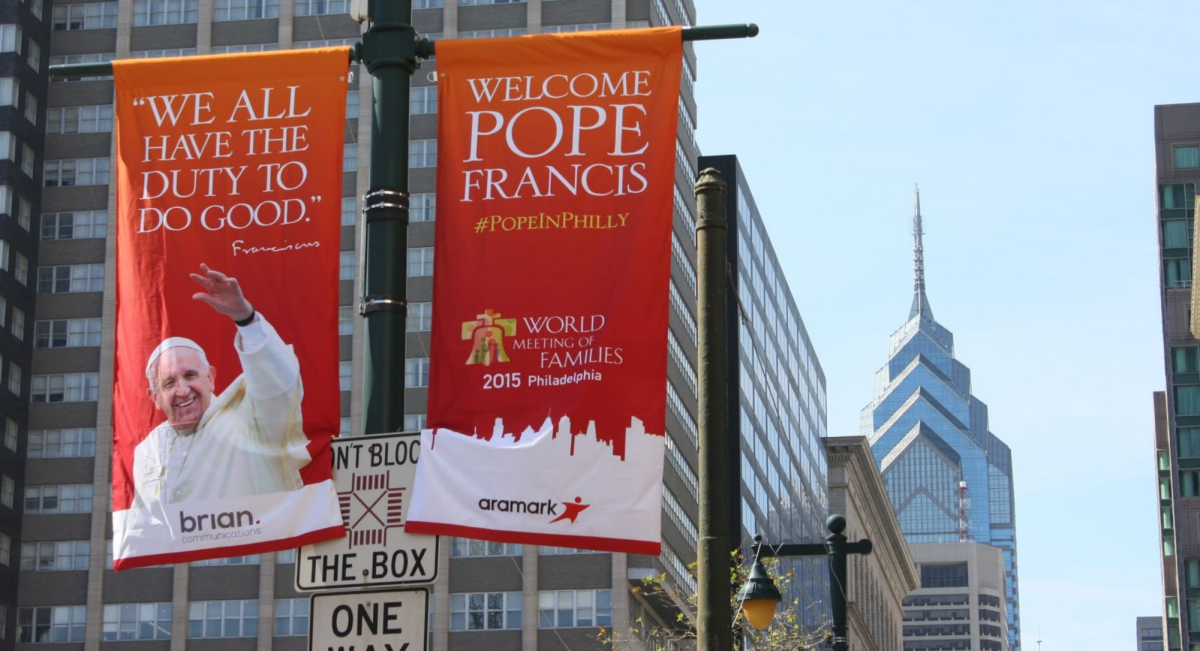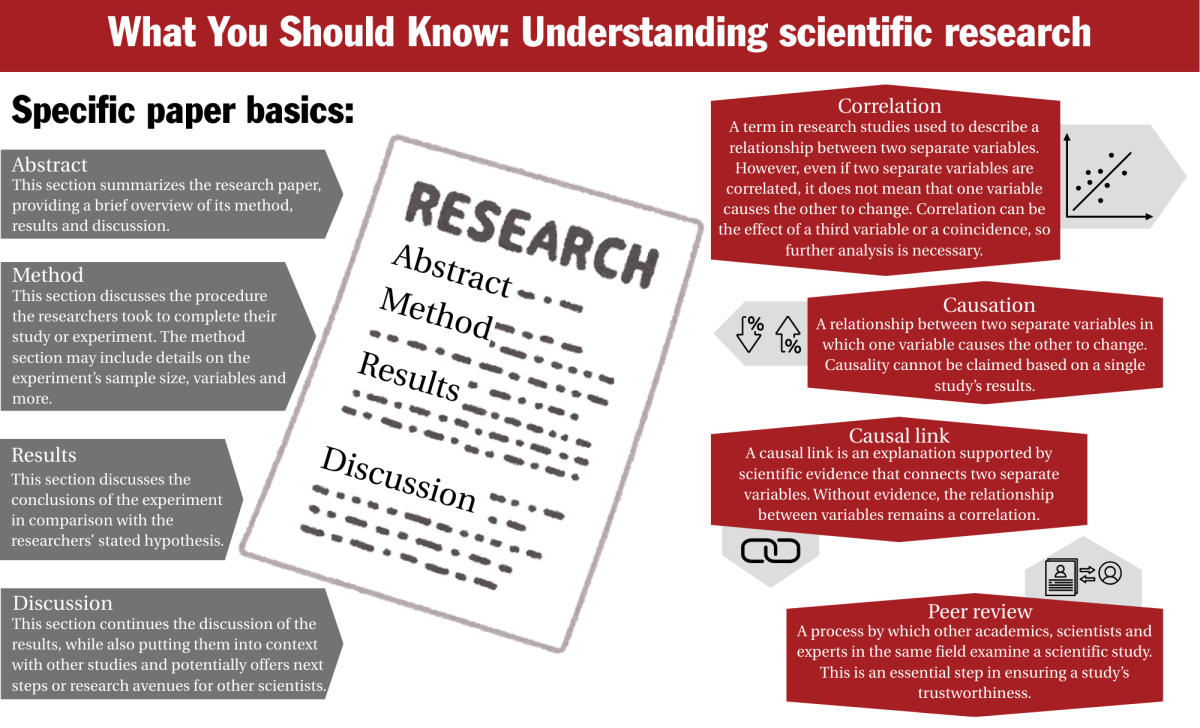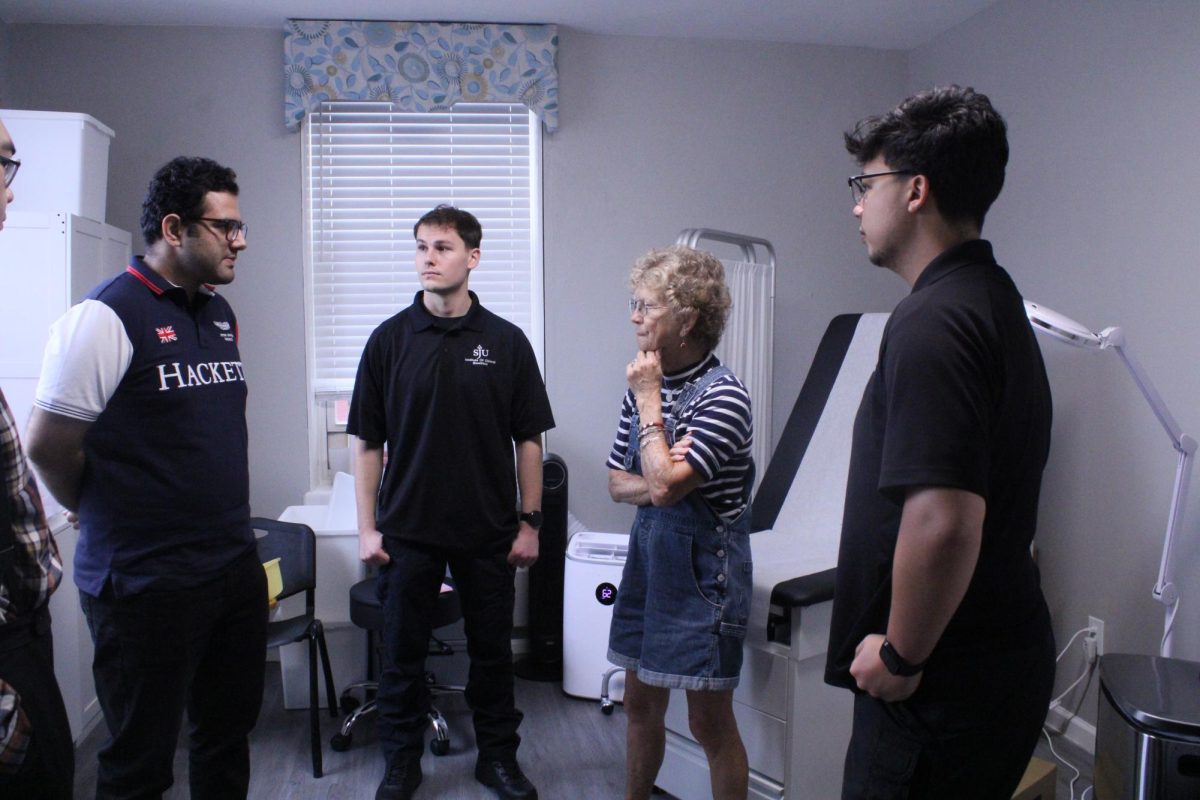This article was originally published Sept. 23, 2015.
Since Saint Joseph’s University is a Jesuit institution, there has been growing excitement throughout the community in anticipation of the first Papal visit by Pope Francis, this coming weekend, Sept. 26-27.
Despite visiting the United States for the first time and visiting important political figures such as President Barack Obama and members of Congress, Francis’ visit also has a great emphasis on meeting with and caring for the poor and others who may not normally be in the spotlight.
“The purpose of his visit is, firstly, pastoral,” explained James Martin, S.J., at a talk at the University of Pennsylvania on Sept. 14. “This is the first time he’s coming to the U.S.; the first time he’s seeing his flock in North America.”
Francis’ concern for some of the world’s most marginalized citizens is evident in his planned stops for his U.S. visit, including Catholic Charities in Washington D.C., Our Lady Queens of Angels School in East Harlem, and Curran-Fromhold Correctional Facility in Philadelphia.
Elizabeth Linehan, professor of Philosophy at SJU and RSM, explained the importance of Francis’ visit to Curran-Fromhold for future impacts on the criminal justice system: “He’s aware of the United States’ reputation as ‘the great incarcerator,’ with our country having a higher percentage of our population in prison than any other country’s proportion,” she said.
Linehan has taught the Inside Out course at St. Joe’s for a number of years, in connection with various correctional facilities in and around the city of Philadelphia, including Curran-Fromhold.
The course combines students from “inside” correctional facilities and “outside” university students to form one class, taught together weekly inside a prison. This course is designed to break down stigmas and barriers, with encouraged dialogue and discussion ,particularly regarding themes of freedom, fairness, and justice.
“Pope Francis has been in prisons before in Rome and Latin America, and very much identifies with people in the margins,” Linehan explained. She also mentioned that Francis may be hoping his visit may bring some injustices of the U.S. prison system to light, such as the fact that some men and women in these facilities are still awaiting trial; and some, even, have not had their bail set, yet are imprisoned.
“I wouldn’t be surprised if he takes the opportunity to personally speak to the facility’s residents, as well their families,” she added. “He’ll be aware of the injustices that may occur in the prison system.”
“The coherence of his agenda will be a catalyst for change. It gives people who work with these issues a place to stand and have their voices heard,” said Linehan.
Because Francis has such an emphasis on social justice in his papacy—from his immediate embrace of a man with disfigurements, to refusing to live in the papal apartments in the name of simplicity, to his landmark encyclical stressing the need to address climate change—students of St. Joe’s are excited for the university’s tradition of social justice to be displayed similarly to the actions of Pope Francis, which are on a global level.
“Pope Francis is drawing attention to the humanity of prisoners and is showing the world that prisoners deserve mercy, as most prisons house people that come from poverty and abusive backgrounds,” said Genevieve Philbin ’16, a student in this semester’s Inside Out course. “Pope Francis is truly acting the way Jesus would have by exposing inequality in our country.”
“Pope Francis teaches with gestures, using his deeds to explain his words, and his words to explain his deeds,” said Martin. He explained that Francis naturally embraces those who live on the margins of society. Pope Francis is also known for being a figure of “spontaneity,” Martin expressed, as some of the pontiff ’s most impromptu gestures on pastoral visits have been the most impactful worldwide.
As a pope of surprises, Francis’ propensity to authentically exhibit Jesus-like love has the St. Joe’s community hoping that his visit to Curran-Fromhold will inspire further care for the most marginalized in our society.
“That’s really what religion is about—care of the poor and love of your neighbor,” emphasized Linehan. “The papal visit will definitely spark conversation about these issues.” According to Linehan, Pope Francis will strive to bring a face and a name to those in Philadelphia who are often faceless and nameless.
“I think people forget to look at their own neighbors when thinking of social justice, but hopefully Pope Francis will open the eyes of Philadelphia’s brothers and sisters,” said Philbin.



















































